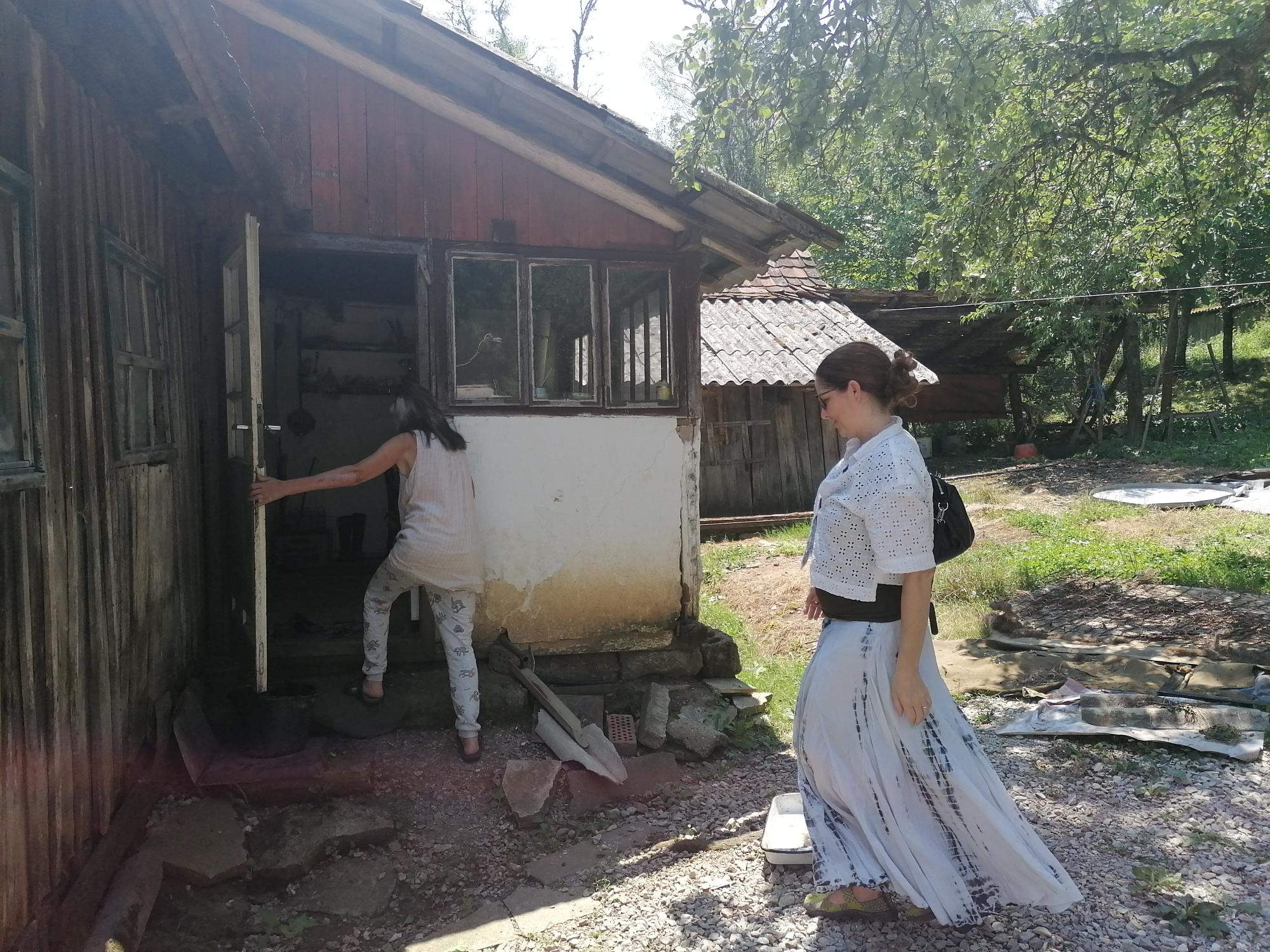In July, Ombudswoman Tena Šimonović Einwalter visited several villages in the Glina area to once again speak with those affected by the earthquake. Some residents gave their consent for her to initiate inquiries regarding the issues they continue to face.
She visited people who, more than three years after the earthquake, are still living in containers next to their damaged homes—some have been granted the right to reconstruction, but work has yet to begin. Others are still awaiting a decision on reconstruction, and many expressed particular concern about the lack of information on whether and when their homes will be rebuilt. Among them is an elderly resident whose home was demolished; while waiting for a new one to be built, he lives in a container without a bathroom and without water.
His case is not isolated—people in these villages, located less than 100 kilometers from the capital, are not only living in containers but also lack access to safe drinking water. As a result, they must find alternative means—most commonly transporting water from springs or neighbors themselves, or being supplied by firefighters. This becomes particularly problematic in summer, when temperatures frequently exceed 30 degrees Celsius. Before the earthquake, they used water from wells, but most have since dried up or are no longer safe for consumption.
Many of the people in this situation are older, live alone, and often in severe poverty. Some continue to use their damaged homes despite knowing they are unsafe. Everyone should have access to safe drinking water, as it is essential for a dignified life. For this reason, the Ombudswoman has consistently highlighted in her annual reports to the Croatian Parliament that the right to water as a human right should be enshrined in the Constitution of the Republic of Croatia. This would strengthen every individual’s right to sufficient, safe, physically and financially accessible water for drinking, food preparation, personal hygiene/sanitation, and wastewater disposal, and would further ensure the monitoring of water supply and quality.
When it comes to post-earthquake reconstruction in Sisak-Moslavina County, despite some progress—particularly in the city of Petrinja and in the reconstruction of public infrastructure—responsible institutions still have not done enough in these rural areas to rebuild family homes and create the conditions necessary for the revitalization of the region, so that residents can live in dignity.
Alongside the Ombudswoman, Deputy Ombudswoman Tatjana Vlašić and advisor Janja Pavković also spoke with the residents of the Glina villages. Valuable information was once again provided by Slavica Marčeta, Director of the humanitarian organization Adra, staff member Daniel Presečan, and others. This organization provides daily assistance to people in the area and has extensive experience in humanitarian work. Ms Marčeta also highlighted to the Ombudswoman some of the challenges the organization has faced, for example, in implementing the “Zaželi” project and in relation to the application of the Humanitarian Aid Act.
More on these issues can be found in the Ombudswoman’s 2023 Annual Report, in the chapters Impact of the Earthquake on the Realization of Human Rights and Right to Adequate Housing, under the subheading Right to Water.





